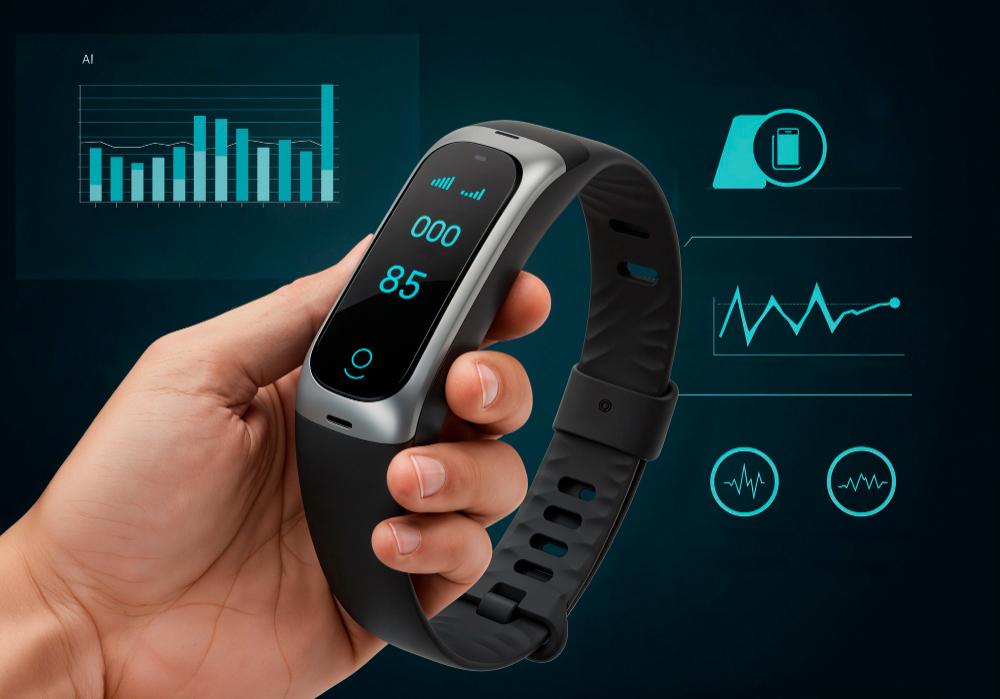The Smart Healthcare Era: Wearable Technology's Impact on Patient Care and Medical Innovation

Modern healthcare is experiencing a technological renaissance, driven by innovative wearable technology that's fundamentally changing how medical professionals deliver care and patients manage their health. These intelligent devices are bridging the gap between clinical settings and everyday life, creating unprecedented opportunities for continuous health monitoring and personalized medical interventions.
The New Generation of Health Monitoring Devices
Wearable technology tracking devices have transcended their original purpose as simple activity trackers to become sophisticated health monitoring platforms. Today's devices integrate multiple sensor technologies, including photoplethysmography for heart rate monitoring, accelerometers for motion detection, and temperature sensors for fever detection.
Companies like Fitbit, Polar, and Whoop have developed devices that can track recovery metrics, monitor stress levels, and even detect early signs of illness through changes in baseline physiological parameters. These devices use advanced signal processing and machine learning algorithms to filter noise and provide accurate health measurements throughout daily activities.
The integration of smartphone connectivity and cloud computing has enabled these devices to provide real-time health insights, trend ***ysis, and personalized recommendations that adapt to individual user behaviors and health goals.
Healthcare Transformation Through Wearable Innovation
The advantages of wearable technology in healthcare extend across multiple dimensions, creating value for patients, providers, and healthcare systems alike. Continuous monitoring capabilities enable early detection of health anomalies, potentially preventing serious medical emergencies through timely interventions.
Patient empowerment represents another crucial benefit, as individuals gain unprecedented visibility into their health metrics and can make informed decisions about their lifestyle choices. This increased awareness often leads to improved medication adherence, better exercise habits, and more proactive health management behaviors.
Healthcare providers benefit from access to rich, longitudinal health data that provides insights into patient health patterns outside clinical visits. This comprehensive view enables more accurate diagnoses, personalized treatment protocols, and better monitoring of treatment effectiveness.
The technology also supports population health initiatives by enabling large-scale health monitoring and epidemiological studies that can identify health trends and risk factors across communities.
Contemporary Wearable Technology Applications
Current wearable technology encompasses a diverse array of devices ***gned for specific healthcare applications. Consumer wearables like Apple Watch and Samsung Galaxy Watch offer comprehensive health monitoring features including ECG capabilities, blood oxygen monitoring, and sleep tracking.
Medical-grade wearables are making significant impacts in chronic disease management. Continuous glucose monitors provide real-time blood sugar readings for diabetics, while smart medication dispensers ensure proper medication adherence. Cardiac monitoring devices can detect irregular heart rhythms and automatically alert healthcare providers to potential issues.
The emergence of specialized wearables for specific conditions includes devices for monitoring Parkinson's disease symptoms, tracking epileptic seizures, and managing mental health conditions through stress and mood monitoring. These targeted solutions provide healthcare professionals with detailed insights into condition-specific parameters.
Next-Generation Healthcare Technology
Future developments in wearable technology promise to revolutionize healthcare delivery through advanced sensor technologies and artificial intelligence integration. Emerging innovations include non-invasive glucose monitoring through skin sensors, continuous blood pressure monitoring, and even early cancer detection through breath ***ysis.
Nanotechnology will enable the development of implantable and injectable sensors that can monitor specific biomarkers and *** levels in real-time. Smart contact lenses may soon monitor intraocular pressure for glaucoma patients, while advanced skin patches could deliver medications based on real-time physiological feedback.
The integration of 5G connectivity will enable ultra-low latency health monitoring, allowing for real-time medical interventions and emergency response. Advanced AI algorithms will provide predictive health ***ytics, potentially identifying health risks before symptoms manifest.
Conclusion
The smart healthcare era, powered by wearable technology, represents a paradigm shift toward preventive, personalized, and accessible medical care. As these technologies continue to evolve, they will play an increasingly central role in maintaining health, managing chronic conditions, and improving overall healthcare outcomes. The future of healthcare is smart, connected, and centered on empowering individuals to take control of their health journey.
Latest Reports:-
Primary Open-angle Glaucoma Market | Progressive Multifocal Leukoencephalopathy Market | Progressive Supranuclear Palsy Market | Bone And Joint Infection Market | Proteus Syndrome Market | Prurigo Nodularis Market | Psoriasis Market | Parkinson’s Disease Psychosis Market | Acute Pulmonary Embolism Market | Pulmonary Emphysema Market | Pulmonary Hypertension Associated With Interstitial Lung Disease Market | Pulmonary Sarcoidosis Market | Pulmonology Devices Market | Pulse Oximeter Market | Pulse Oximeters Market | Pyoderma Gangrenosum Market | Rabies *** Market | Radiation Induced Esophagitis Market | Radioligand Therapies Market | Raynauds Disease Market | Reactive Arthritis Market | Recurrent Glioblastoma Market | Recurrent Malignant Glioma Market | Recurrent Pericarditis Market | Renal Anemia Market | Restless Legs Syndrome Market | Restrictive Cardiomyopathy Market | Retinal Detachment Disorder Market
- Art
- Causes
- Crafts
- Dance
- Drinks
- Film
- Fitness
- Food
- Jocuri
- Gardening
- Health
- Home
- Literature
- Music
- Networking
- Alte
- Party
- Religion
- Shopping
- Sports
- Theater
- Wellness


